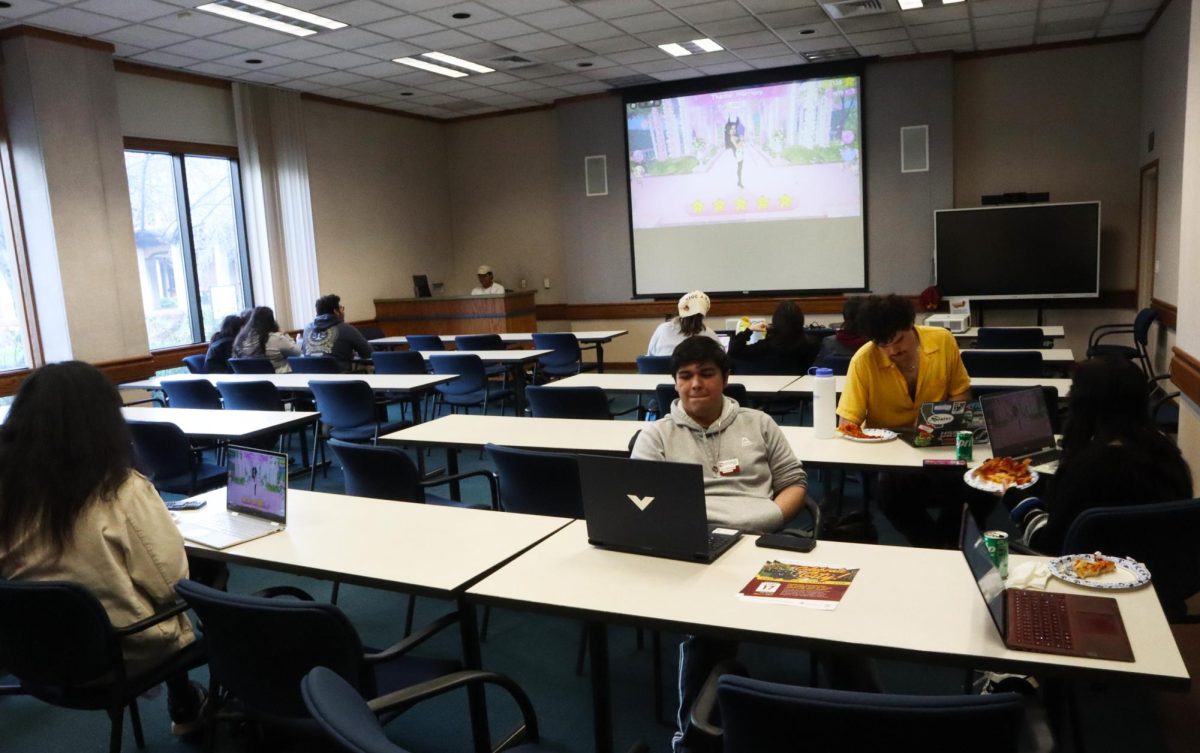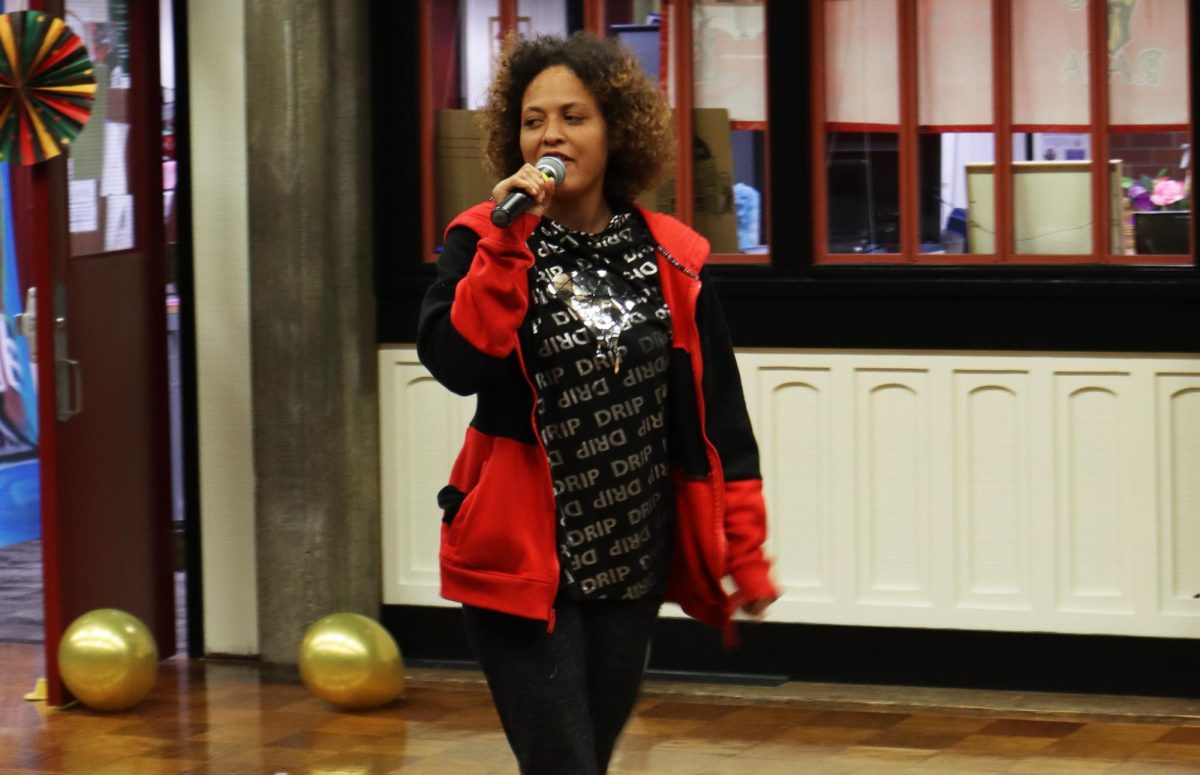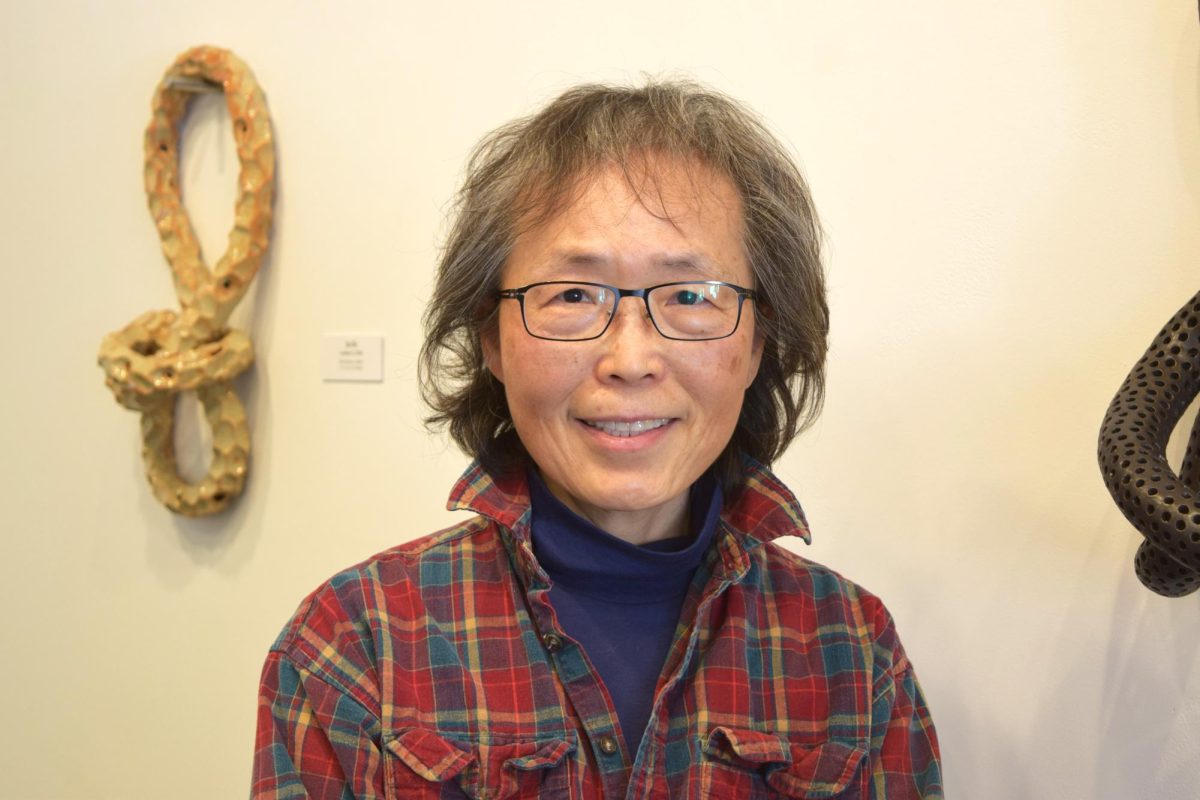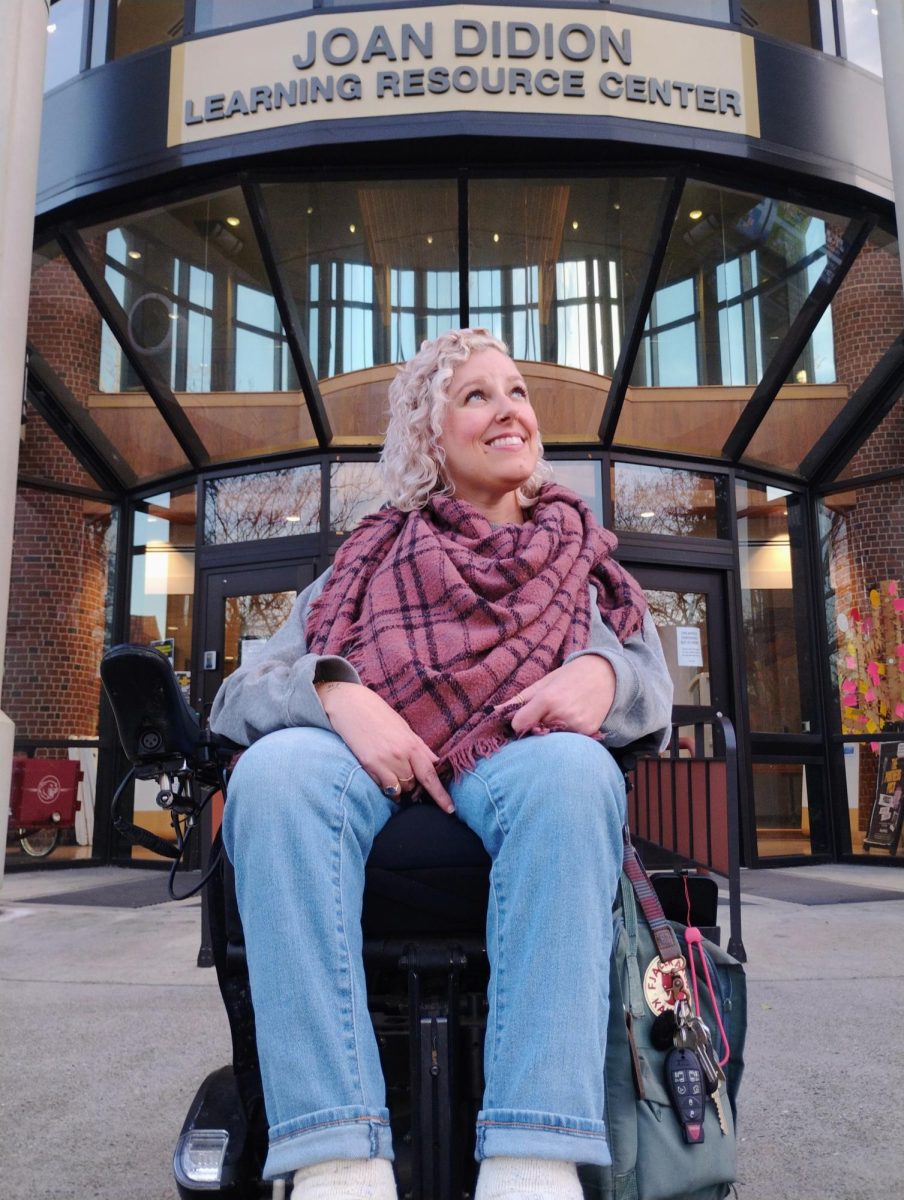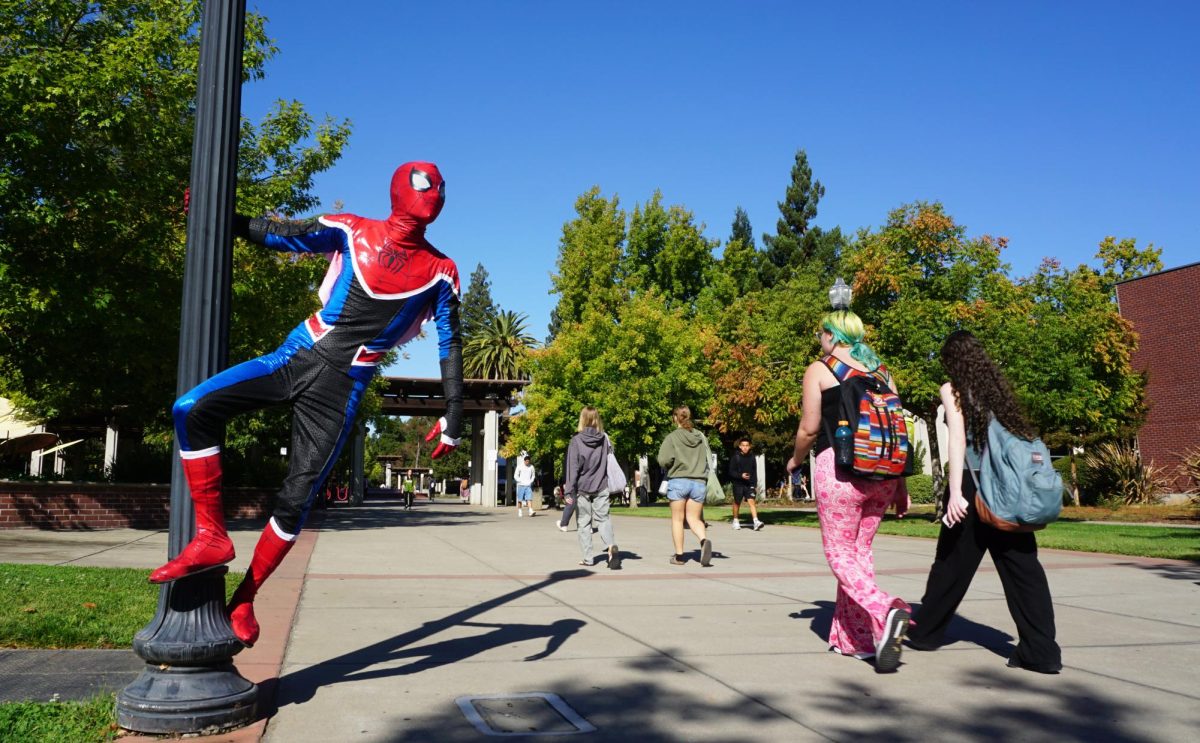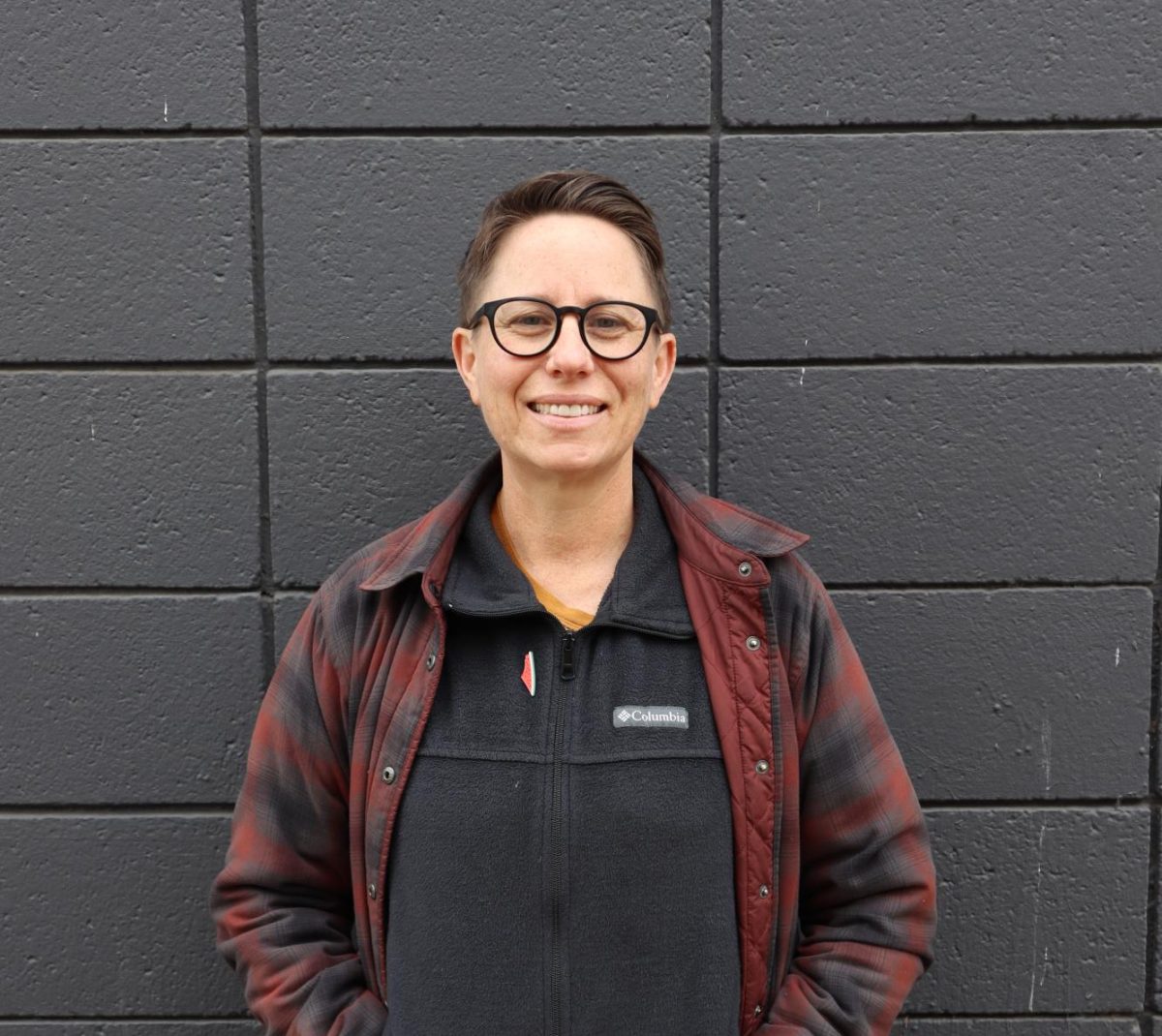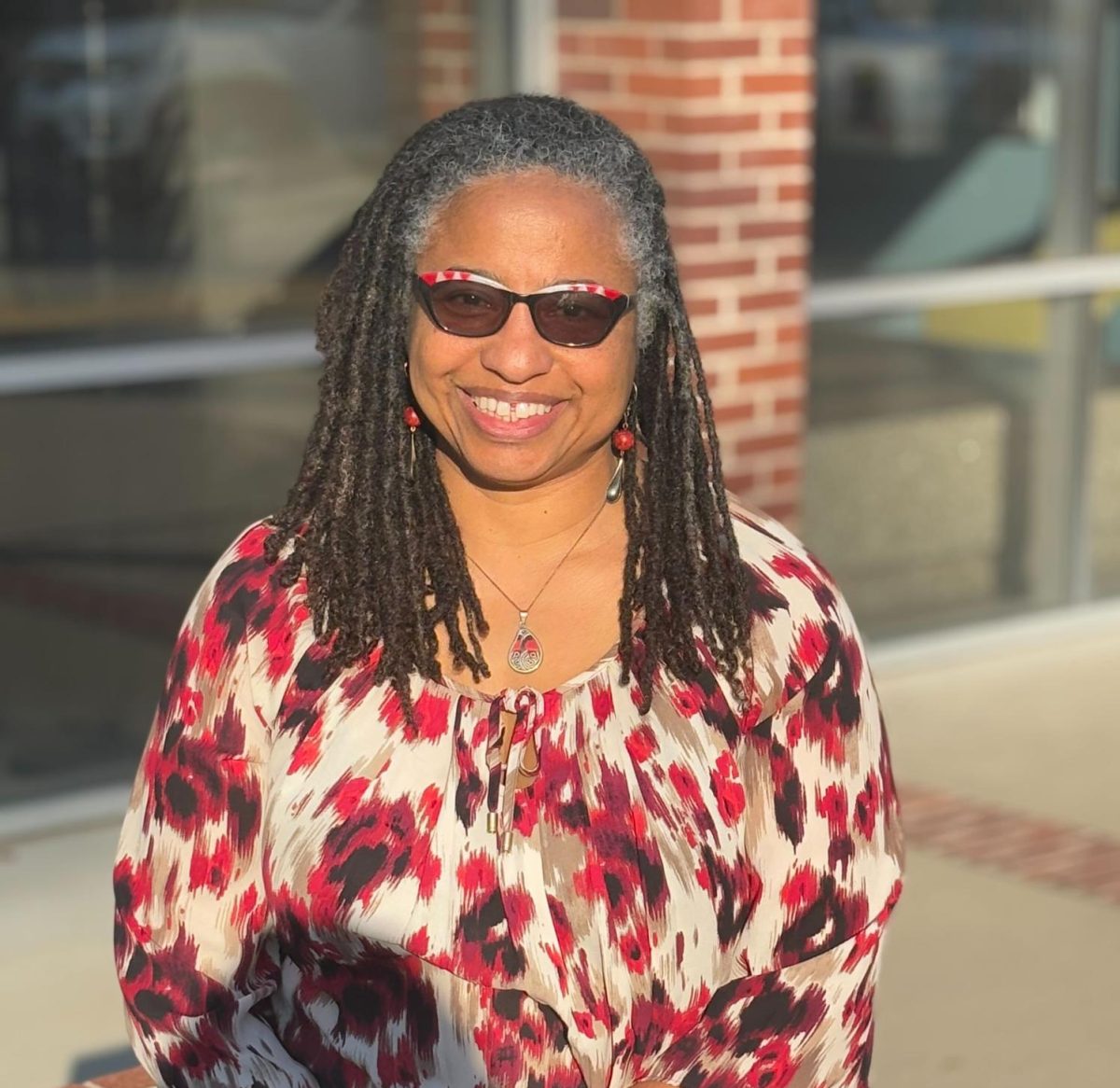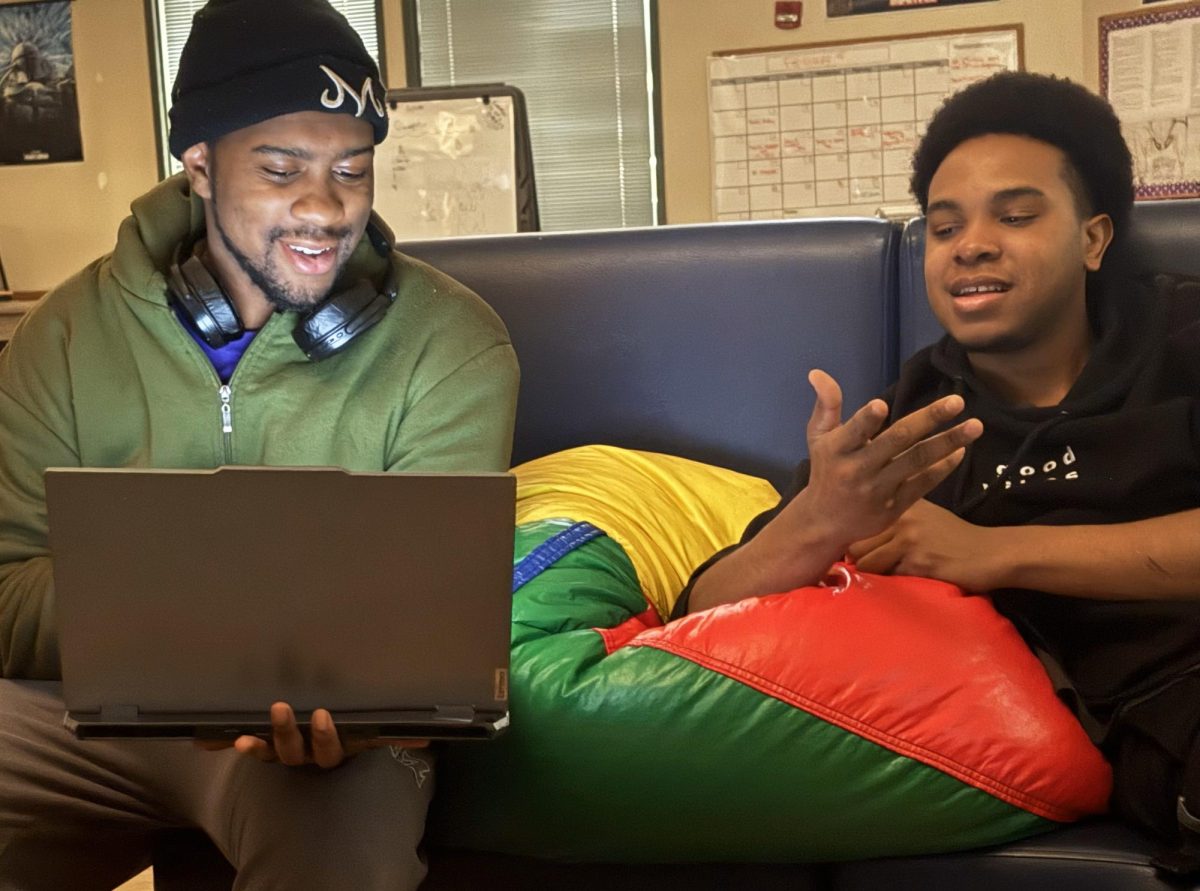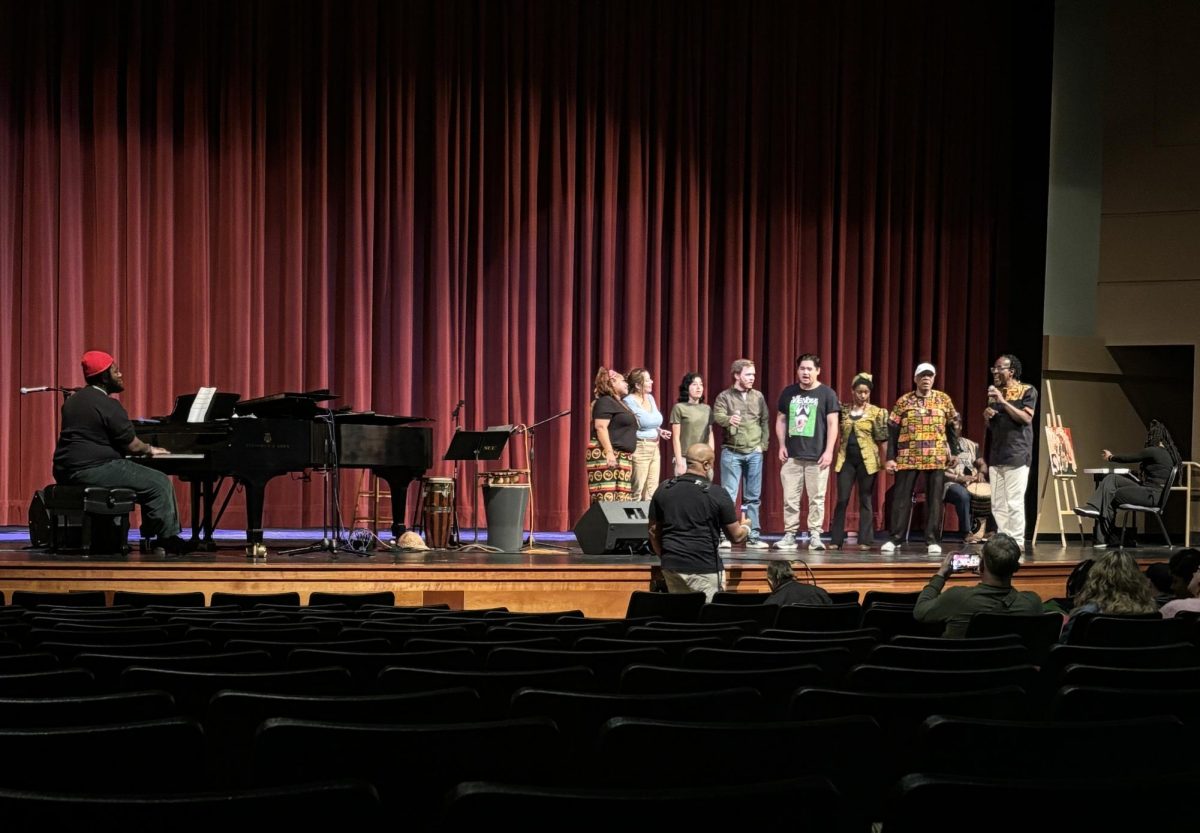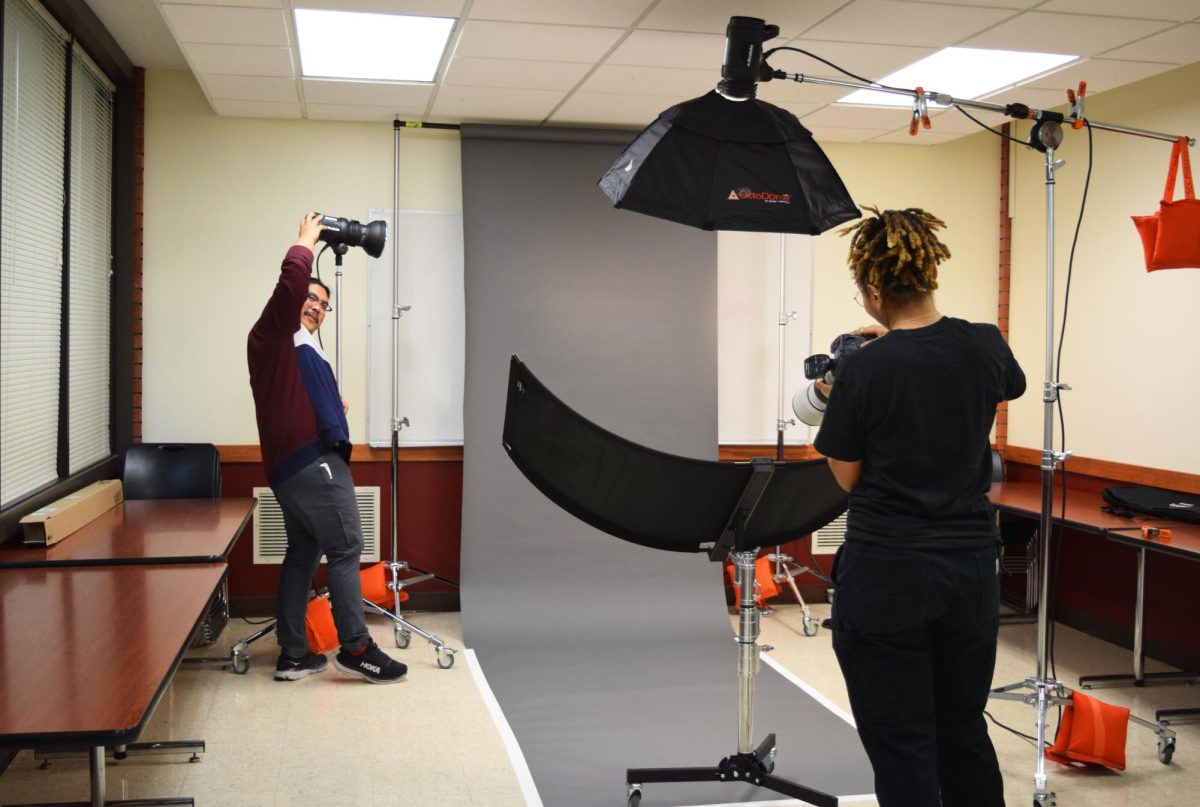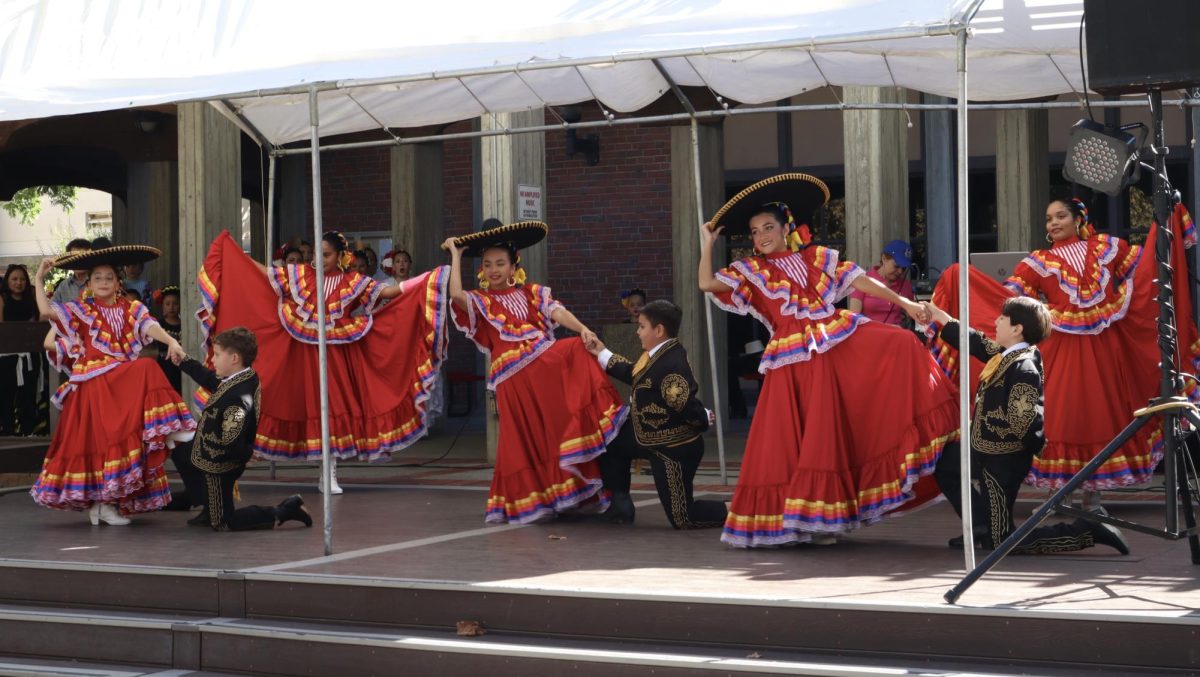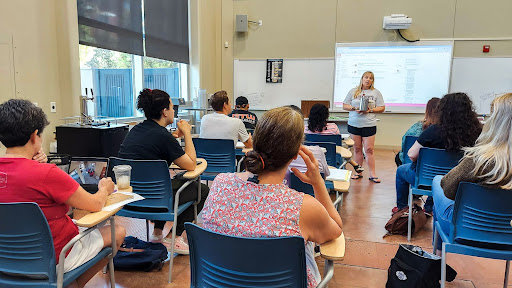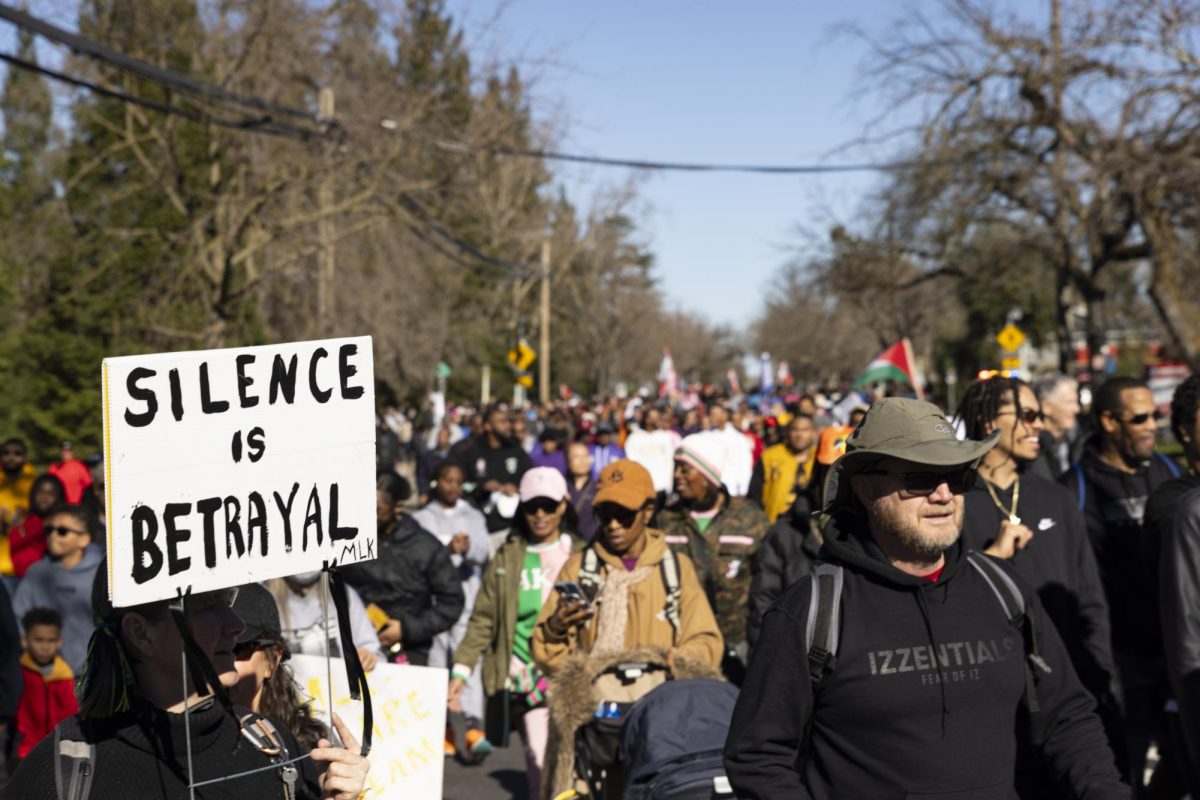
Vanessa S. Nelson | Photo Editor | vanessanelsonexpress@gmail.com
Honor and belief in duty permeates everything about Robert Hammon.
Hammon is a nervous man, quick to help people understand his anxiety disorders and PTSD, pacing often, sometimes on the verge of sweating. But he quickly forgets about all his anxiety when engrossed in storytelling.
He gesticulates with his cigarillo while talking. When lost in thought, he chomps down hard on it, and, like the Southern gentleman he is, when a passer-by offers him a dollar for one, he asks if they’re OK with a cigarillo.
“Then you’re a dollar richer,” he replies, while handing it to them.
Hammon, 38, runs the fiction-writing group in the Learning Resource Center.
“A lot of people on campus feel that genre writing is less than acceptable,” says Hammond. “I wanted a group where everyone could gain knowledge of literary writing and apply it to genre writing.”
Hammon’s group works to bridge the gap between the two.
“I get a lot out of it,” says group member and student Aaron Smith. “He’s a very skilled writer and has a lot of experience.”
Hammon is quick to point out that writing focused on characters over plot and tropes, which hit universal truths, is just a hallmark of good writing in general.
Hammon’s characters hit universal truths in spades. His literary inventions are immature, brash and often in over their heads in situations they can’t understand, learning lessons they themselves may never grasp, flawed, entertaining and altogether human.
“People need to look beneath the surface to see what’s right in front of them,” Hammon says. “It’s one of the areas I try and go into with my writing, focusing in areas that people don’t normally look.”
“I can see him considering many different aspects of the things we’re discussing,” says City College English professor Marci Selva, regarding Hammon’s contribution to the student literary journal Susurrus, which she advises. “What I like about him is he’s honest about things he doesn’t feel as confident about. For example, he doesn’t really get poetry. But I like that he asks a lot of questions, and he tries to sort of get through it.”
In late October, the Susurrus staff attended a poetry reading at Luna’s Cafe in Midtown. Hammon delivered “the first serious poem I ever wrote.” He was shaking and nervous at poetry night, but “The Warrior” was well-received.
Cultural differences between California and his home in Louisiana are a source of fascination for Hammon. He recounts a story of one of his teachers being baffled when a man trying to buy her car on Craigslist tried to haggle her down by offering meat from his farm.
“Where I come from that’s an everyday occurrence,” says Hammond. “There’s so many things I don’t even think of as stories that trip people out.”
Another is how people view the military. Hammon is proud of the tour he spent in the Navy.
“We’re going to serve something that calls to us, not as an occupation or a job,” he says. “It’s who we are.”
Hammon feels there’s a gulf in how the West Coast and the South view the military. In California he finds people often conflate their views of the “military complex” with “military individuals.” Through his stories he wishes to change that. His largest series, “A Camel Named Asshole”, is about a pair of Navy boys — who may or may not resemble Robert Hammon himself — and the trouble the young men get into at every port of call.
Back under the smoking tent, one had to ask.
“Why’d you bring me to this smoking area?”
“This is the one I always come to,” he says.
A few months back, while smoking his cigarillo, gunshots broke out, maybe 50 feet from the smoking tent. Hammon was right there, front and center, and his first reaction was to bolt straight toward the gunfire.
“Just military training,” Hammon says. “I’m not one to stand by and watch.”
When he reached the victim, Hammon removed his own shirt, shredded it and made it into bandages to stop the bleeding. The incident was the first shooting death in the history of the campus.
The shirt is still held as police evidence, yes, for the blood of the victim, but also evidence that Robert Hammon is an honorable human being.
Editor’s Note: This story was written by guest writer William Coburn (willccoburn@gmail.com)

